Listen up, people, and I’ll give you a heads up. This treatise discusses the importance of “up” in our language. So, perk up your ears …
Grammarians, lexicographers, statisticians, and other crazy people claim that the English articles “a,” “an,” and “the” are our most commonly used words. Hah! I claim those aren’t even words, but mainly just sounds smoothing the path from one real word to another, playing the same role that slides do in music.
Admittedly however, articles do have something of a personality. For example, “A” and “an,” being averse to specificity, are pretty wishy-washy. Consider a case where Ralph timidly tells us a man went on an adventure. What man? What adventure? We’ll never know.
“The,” on the other hand, is positively … er’ positive. Sometimes, it mimics a herald of old as he signals with trumpet a-blare before declaring its object: “Ta-ta-ta-dahhh! Hear ye, hear ye! Citizens! By the grace of our sovereign, cast your gaze on yonder river (pausing for dramatic effect): The Mighty Mississippi!” Other times, “the” is a carnival barker: “Ladies and gentlemen, boys and girls! Come one; come all! For ten cents, a mere dime, two measly nickels; here’s your chance for entertainment, for elucidation, for education, a chance to partake of amusement and amazement, a chance to observe and admire (pausing for dramatic effect): The Giant Midget.”
Regardless of my preceding, flagrantly flowery exposition, the English articles “a,” “an,” and “the” offer only quantity, not quality. I claim that the most important word in our common (or uncommon) language is “up.”
Now, I don’t plan to cover all the separate occurrences of “up” in our communications. That would require researching all words and common phrases in the English language (an on-going project) to ferret out and list every occurrence of “up.” So forgive the lapse … and be grateful for it. What I want to do is present some examples, hopefully enough to convince you of my thesis, if not my sanity.
Let’s begin with a few prefix forms: uptown, upscale, and upchuck.
Add to that a few simple phrases: up a creek, up yours, and up in arms.
Then, there are word helpers such as in: sit up, stand up, shut up, and settle up. And, there are cases where the helper itself uses a helper, namely “it,” as in: use it up, chalk it up, dish it up, wipe it up, and talk it up.
In fairness and scholarly perfectitude (I know, I know. It’s not a word … but it should be), I admit that there are “down” variants to consider, such as: sit down, stand down, shut down, and settle down. That raises the question, “Is ‘down’ used just as commonly as ‘up’?” I think not (which translates to “I don’t think,” but we’ll let that pass). Yes, we do have downtown and downscale; yet downchuck eludes us, and in the simple phrases above, it’s not always easy to see “down” substituted for “up.”
Of course, that begs the question. (What an odd term: “begs the question.” Beg it how exactly; beg for what?): The question is: Are there just as many times when “down” appears and “up” would be inappropriate? Certainly, there are such cases: quiet down, lie down, down-filled, tamp it down, press down, pound down, down the hatch, down and dirty, down the drain, down-size. (An aside to ponder: “lie” is comfortable only with “down,” whereas “lay” is almost sexual; i.e. “lay down” and “lay up” cohabit happily in the bed of prose.)
I believe, however, there are many more cases where “up” occurs and “down” would go “down in flames.” Here are a few examples: single up all lines, speak up, open up (something), up-to-date, fill ‘er up, eat it up, saddle up, mount up, a toss up, batter up, change up, goof up, tuck up, suck up, flub up, … seems like I’m missing one here.
I’ve by no means used up all occurrences of “up,” but by now you must be fed up.
Never miss a meeting or community event – keep an eye on the community calendar at https://www.thefallonpost.org/events/ If you like what we’re doing, please support our effort to provide local, independent news and contribute to The Fallon Post, your online news source for all things Fallon.


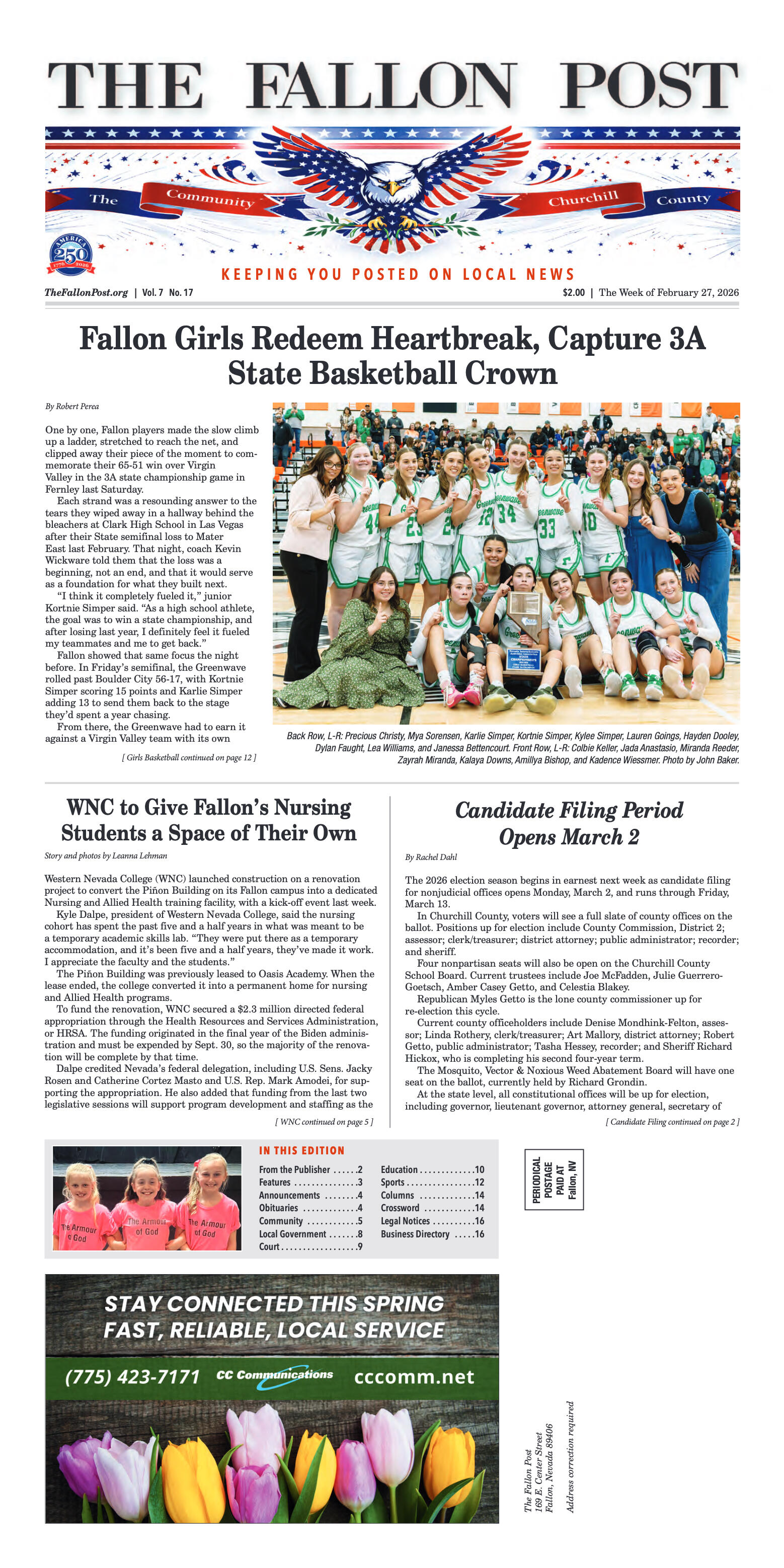
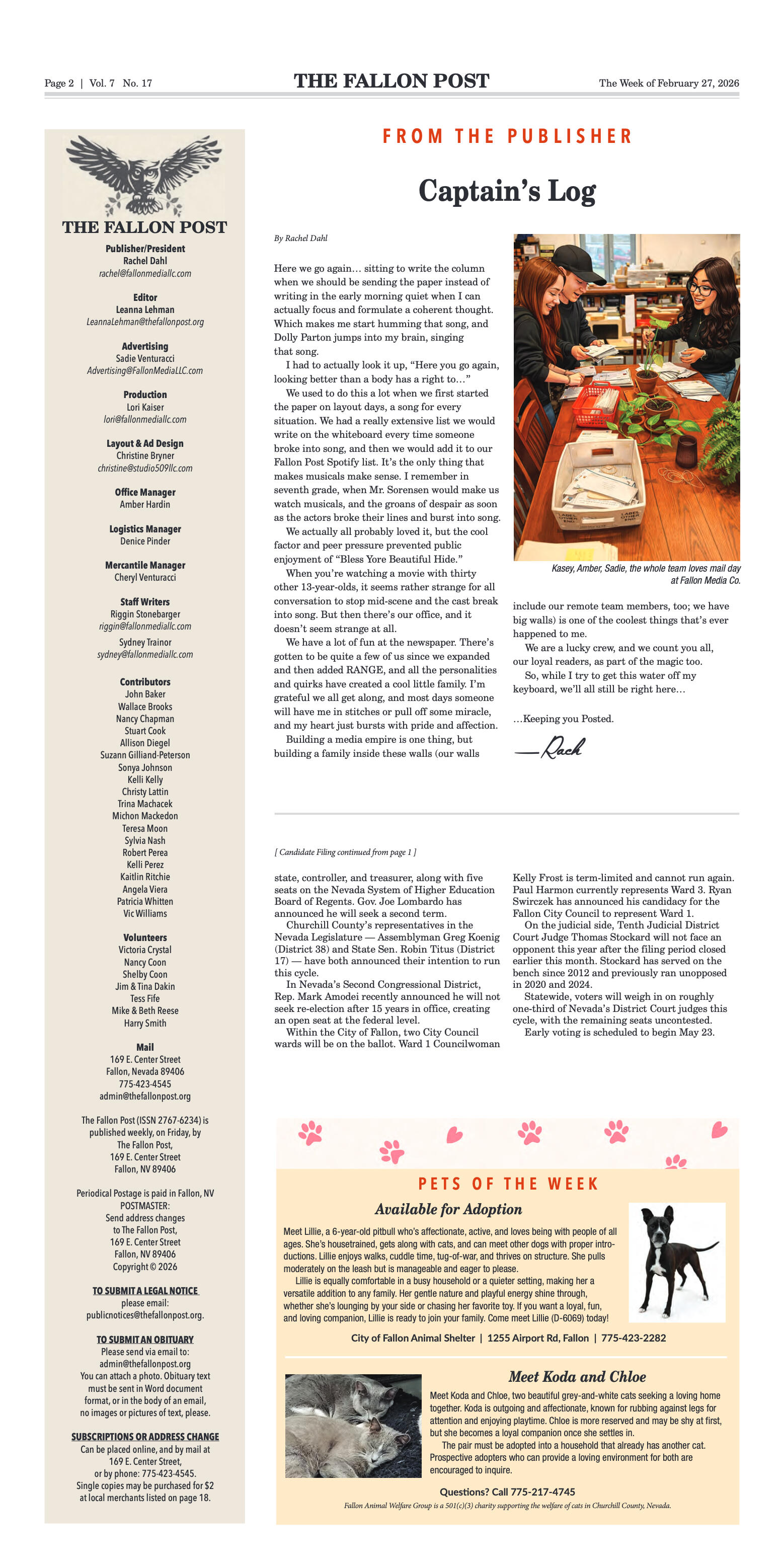
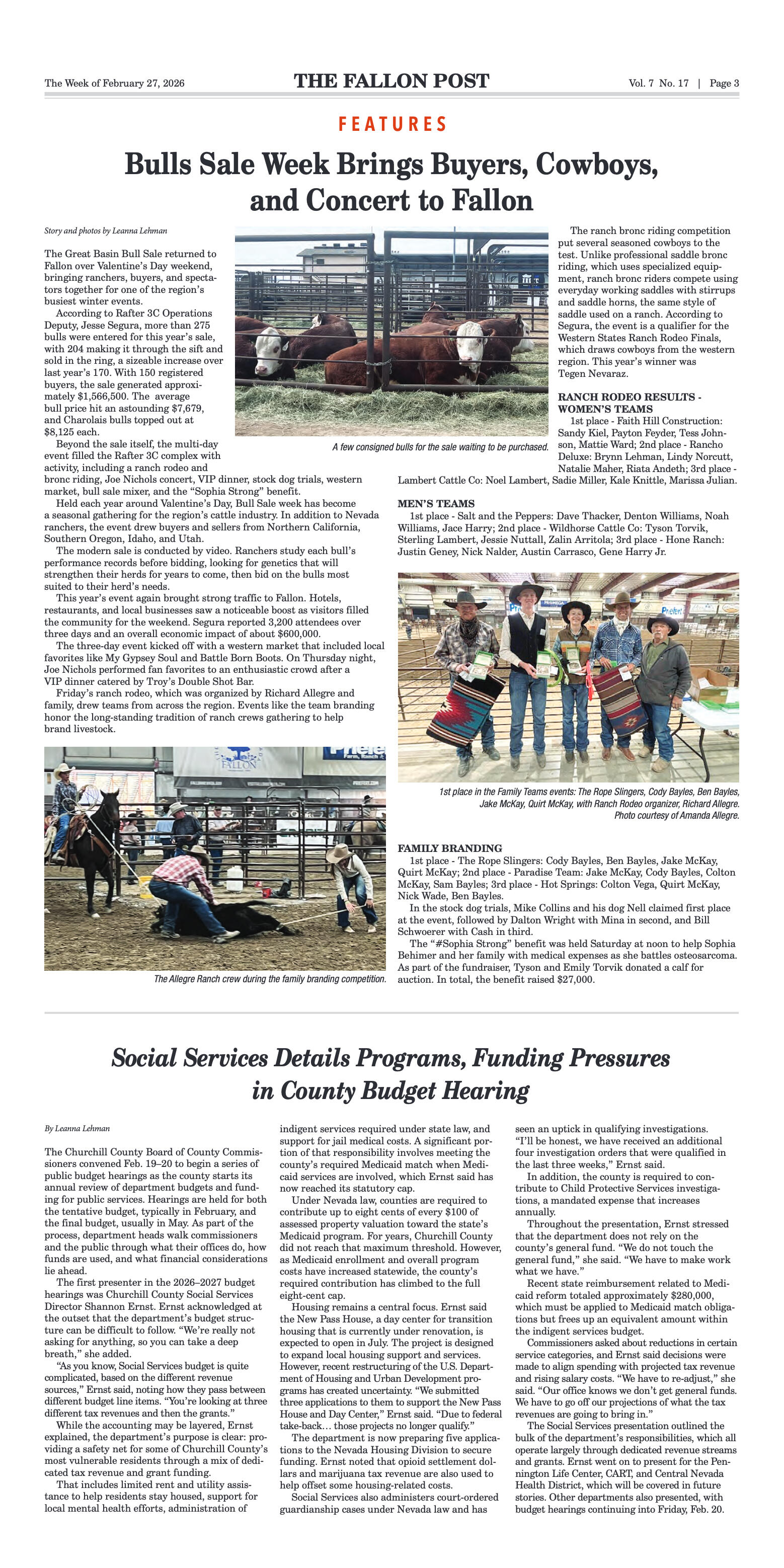
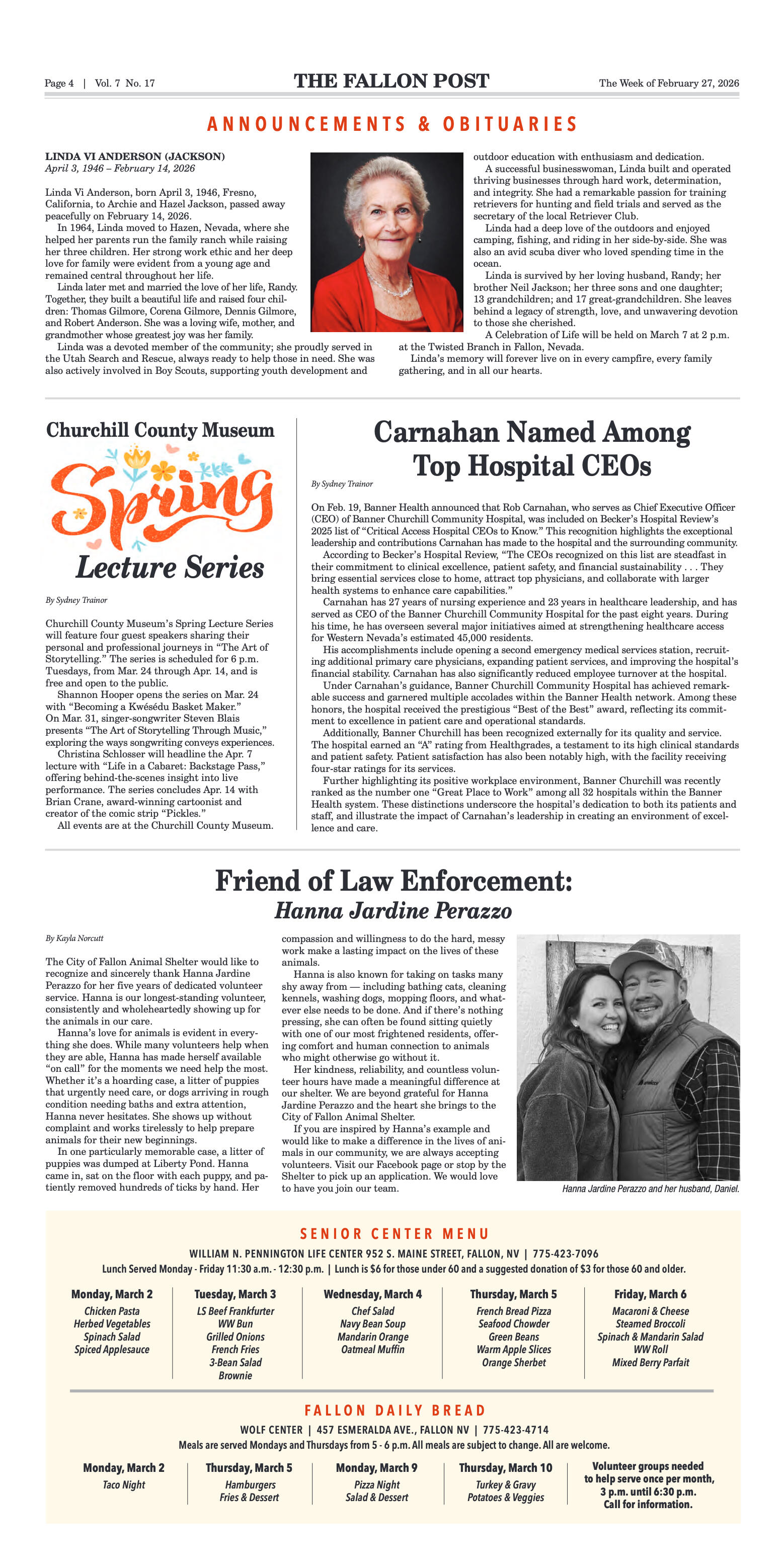
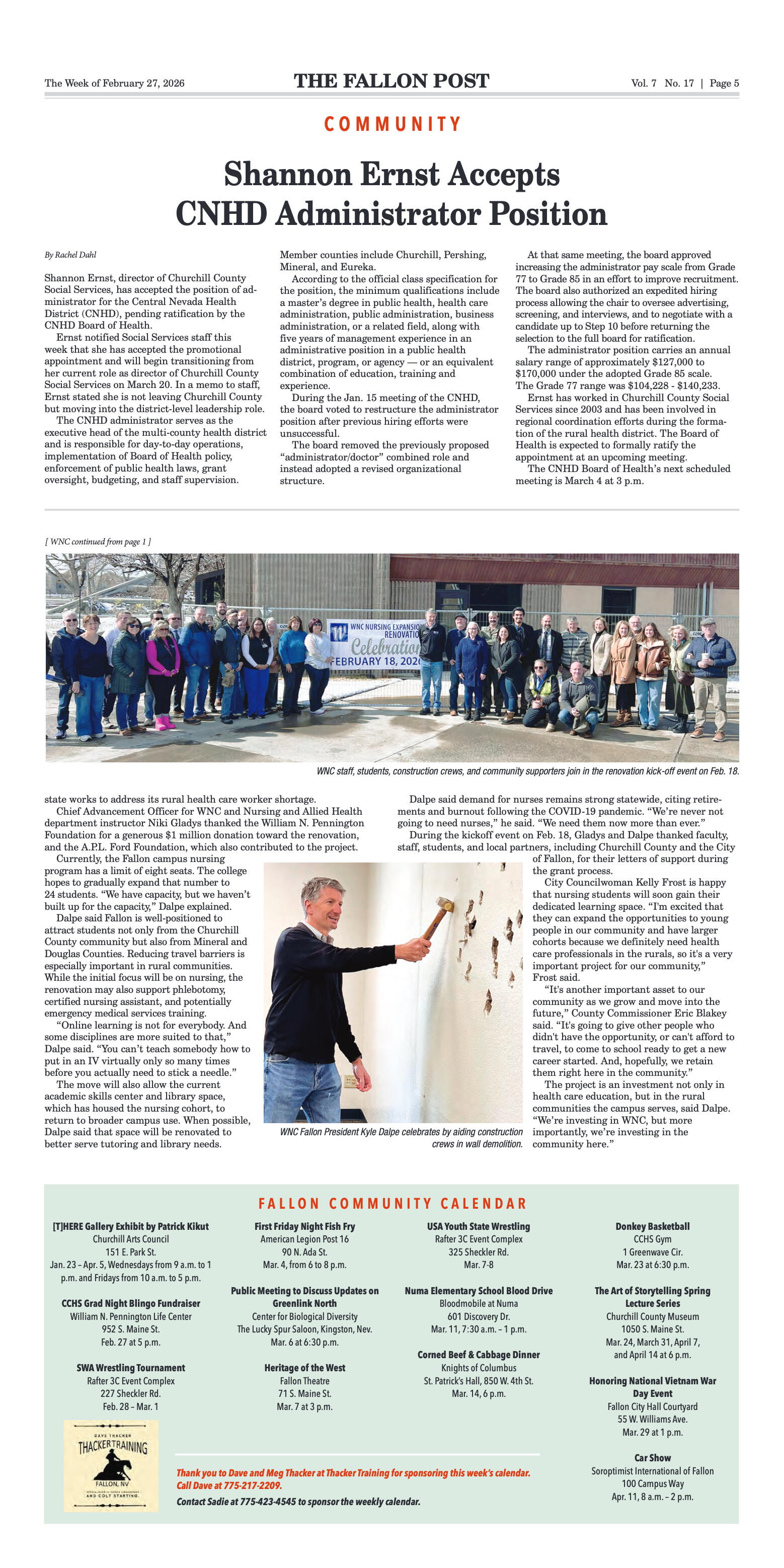
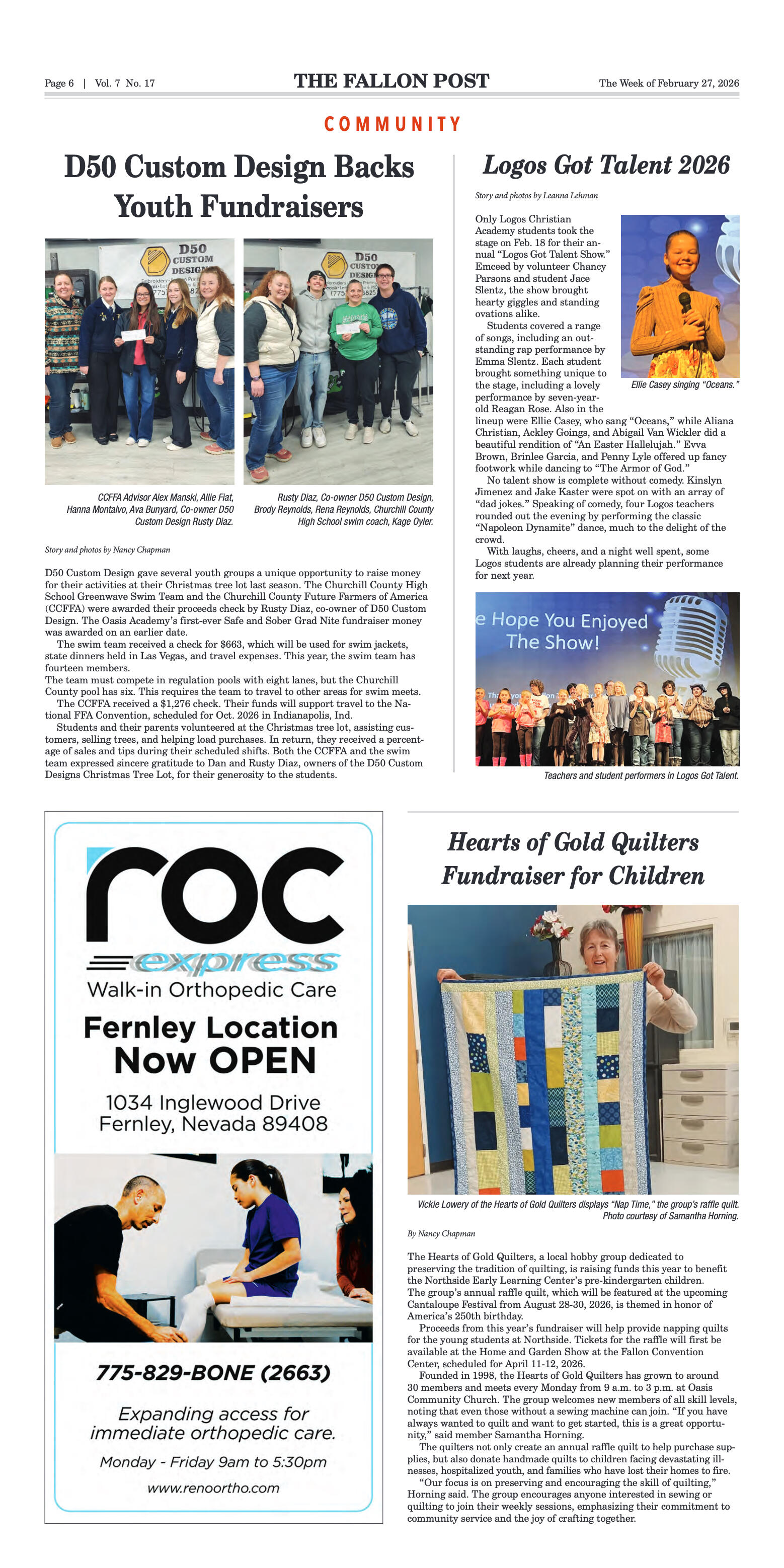
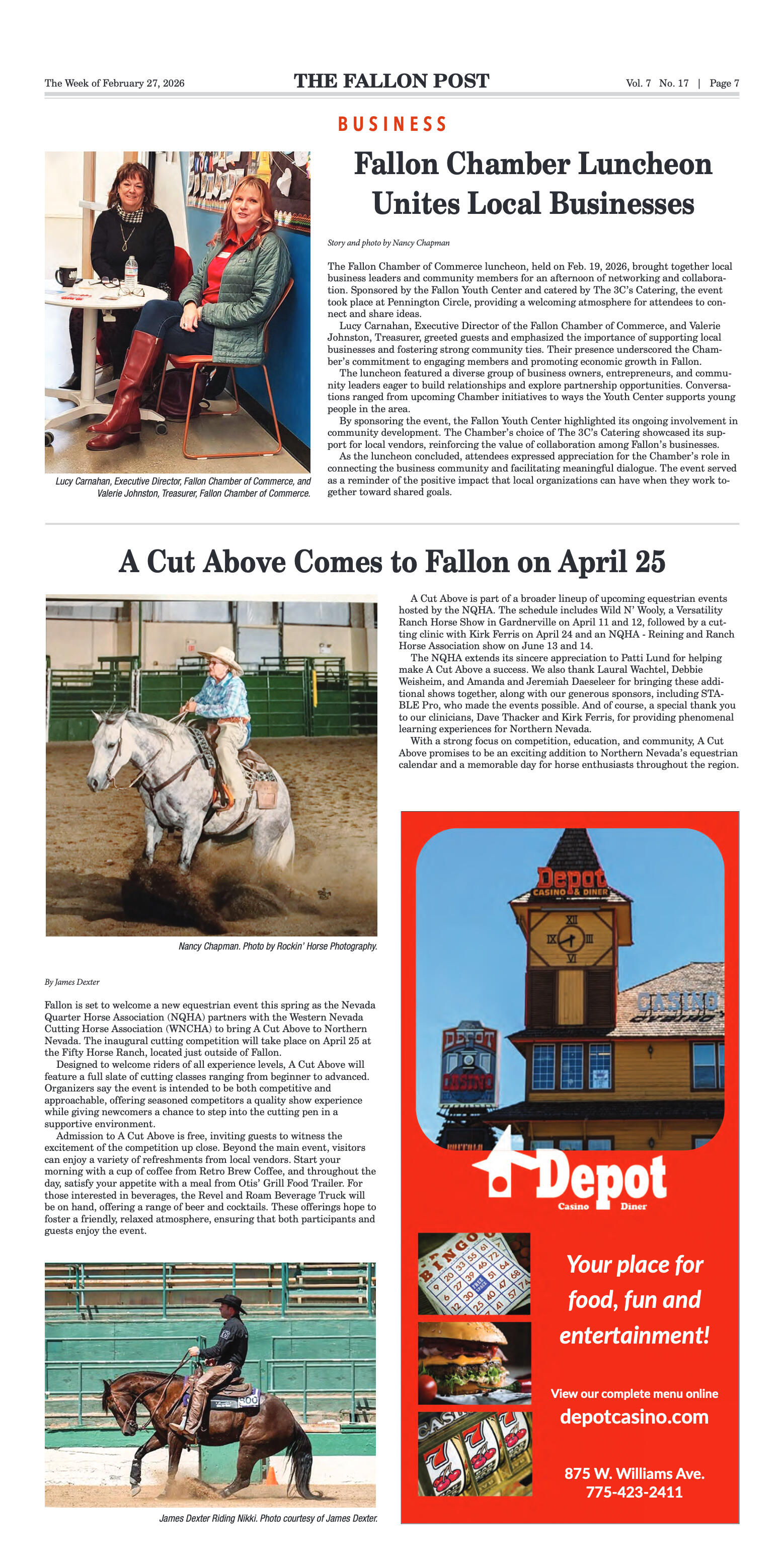
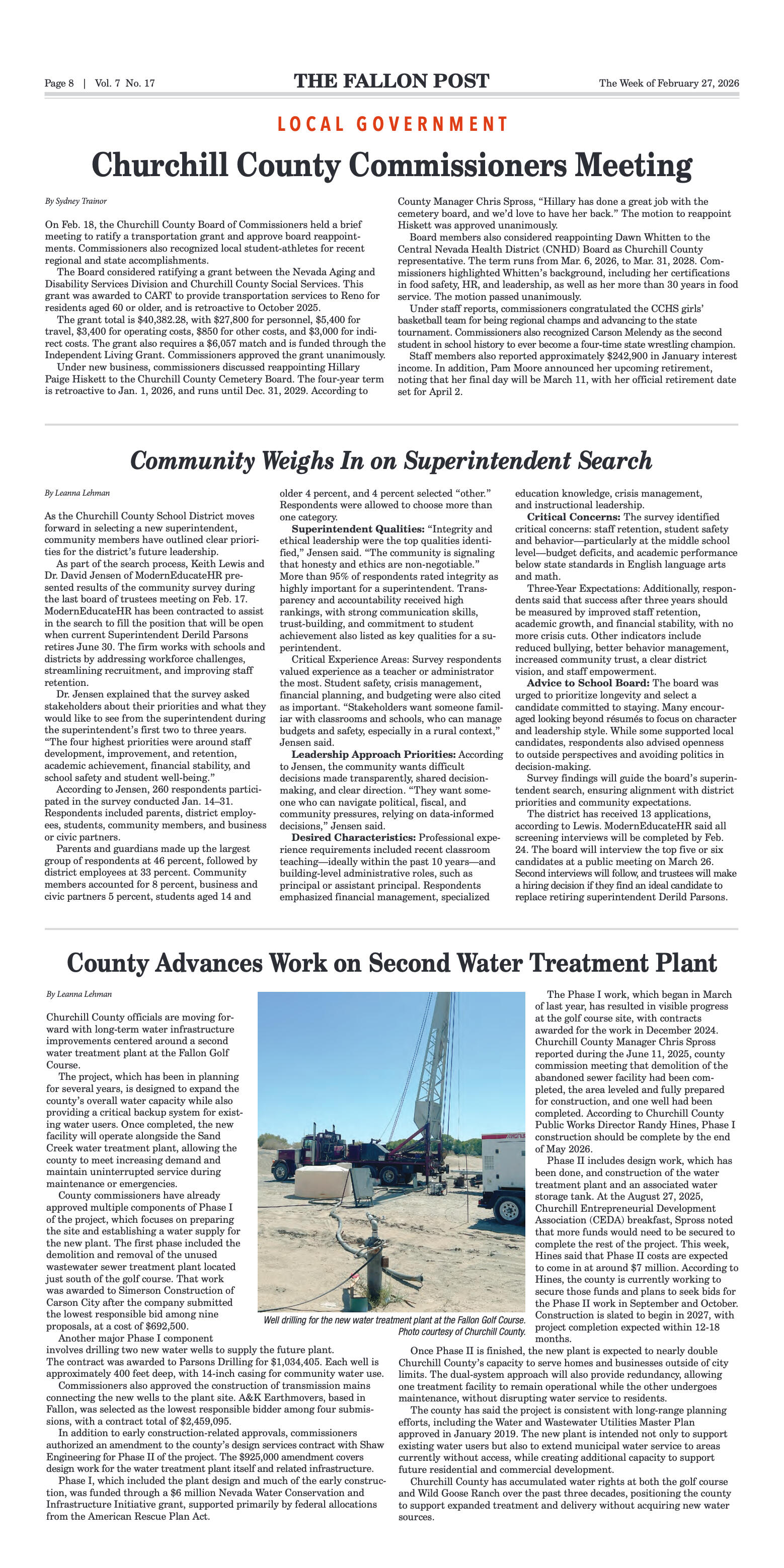
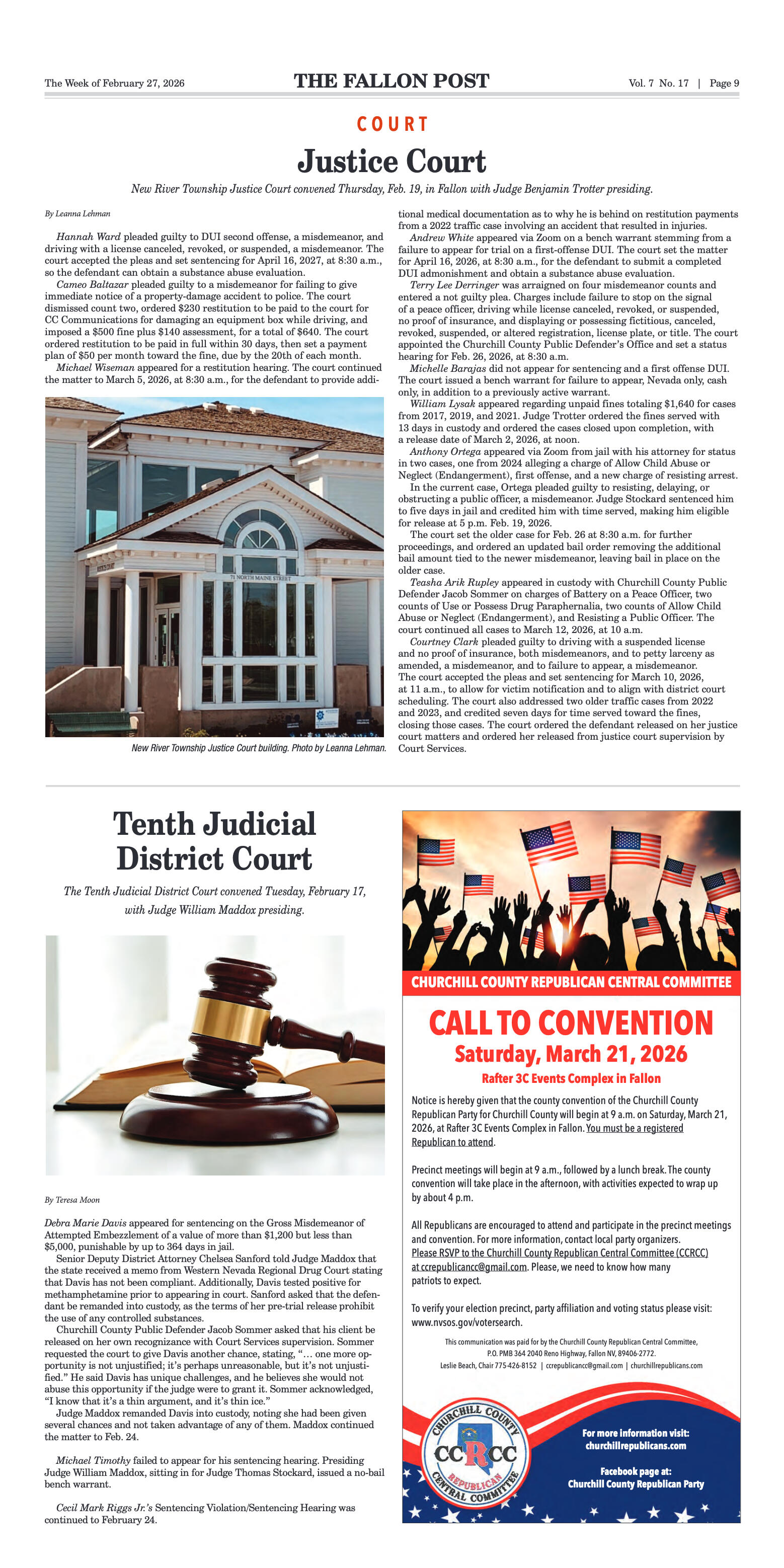
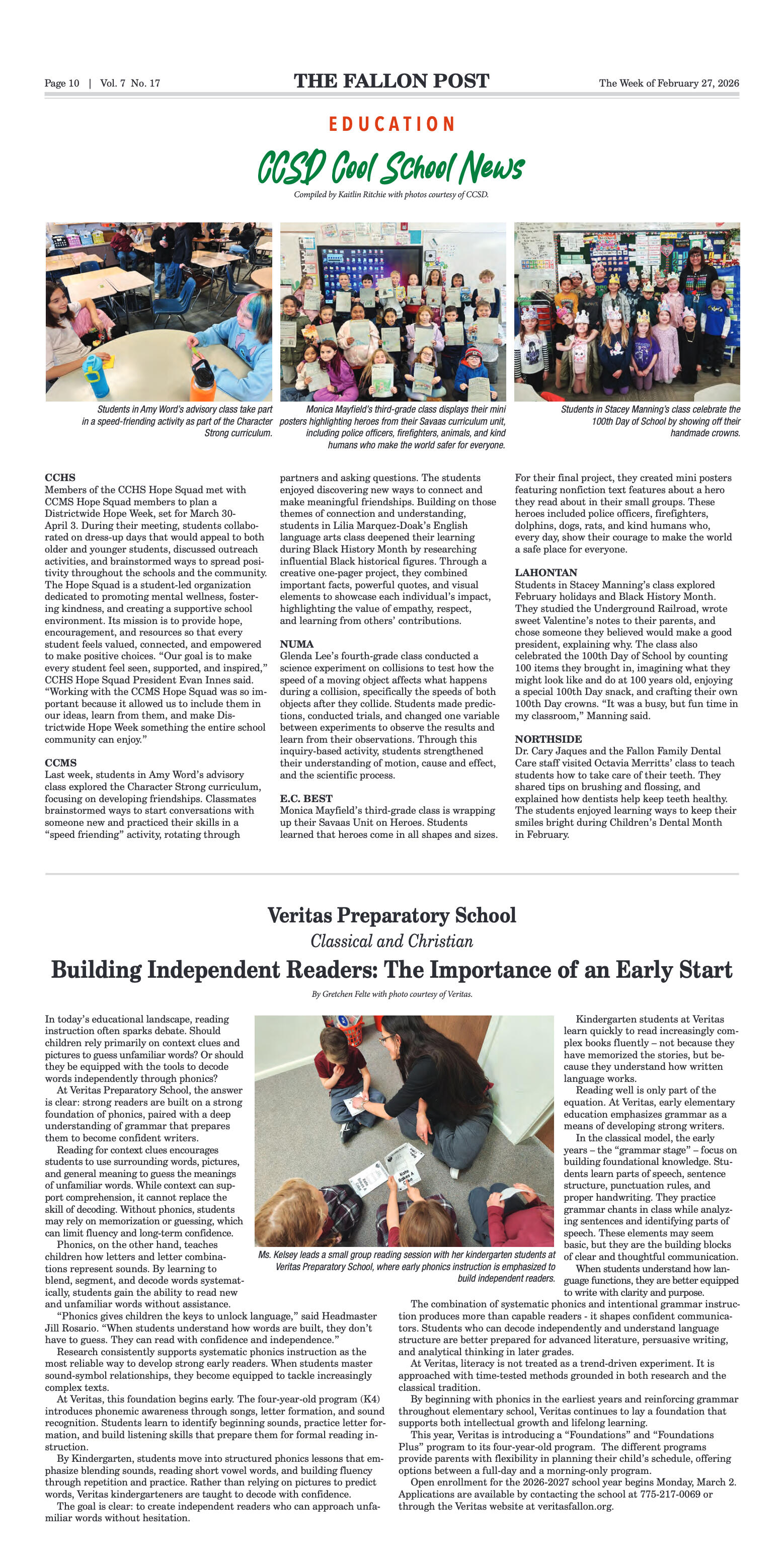
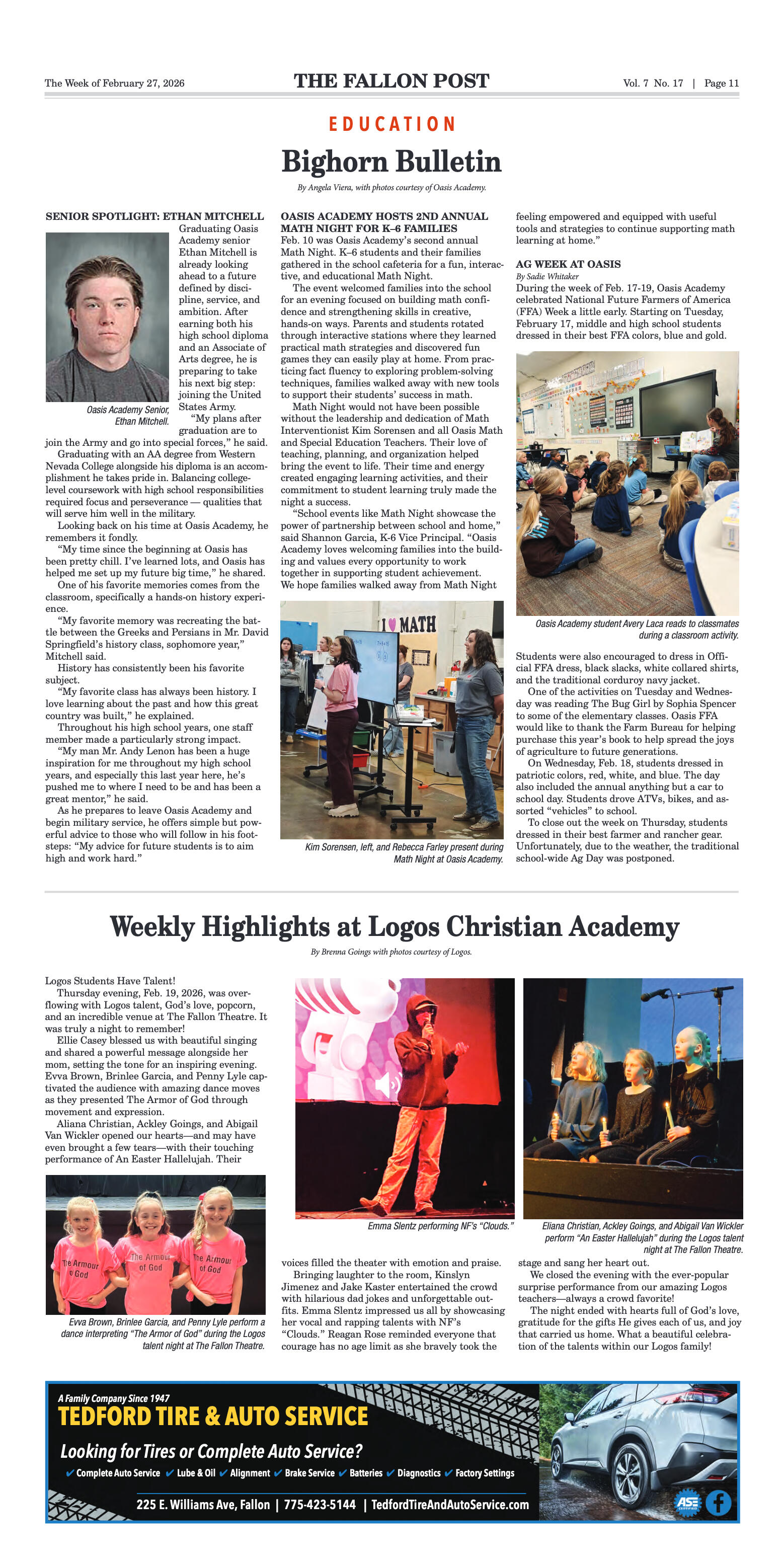
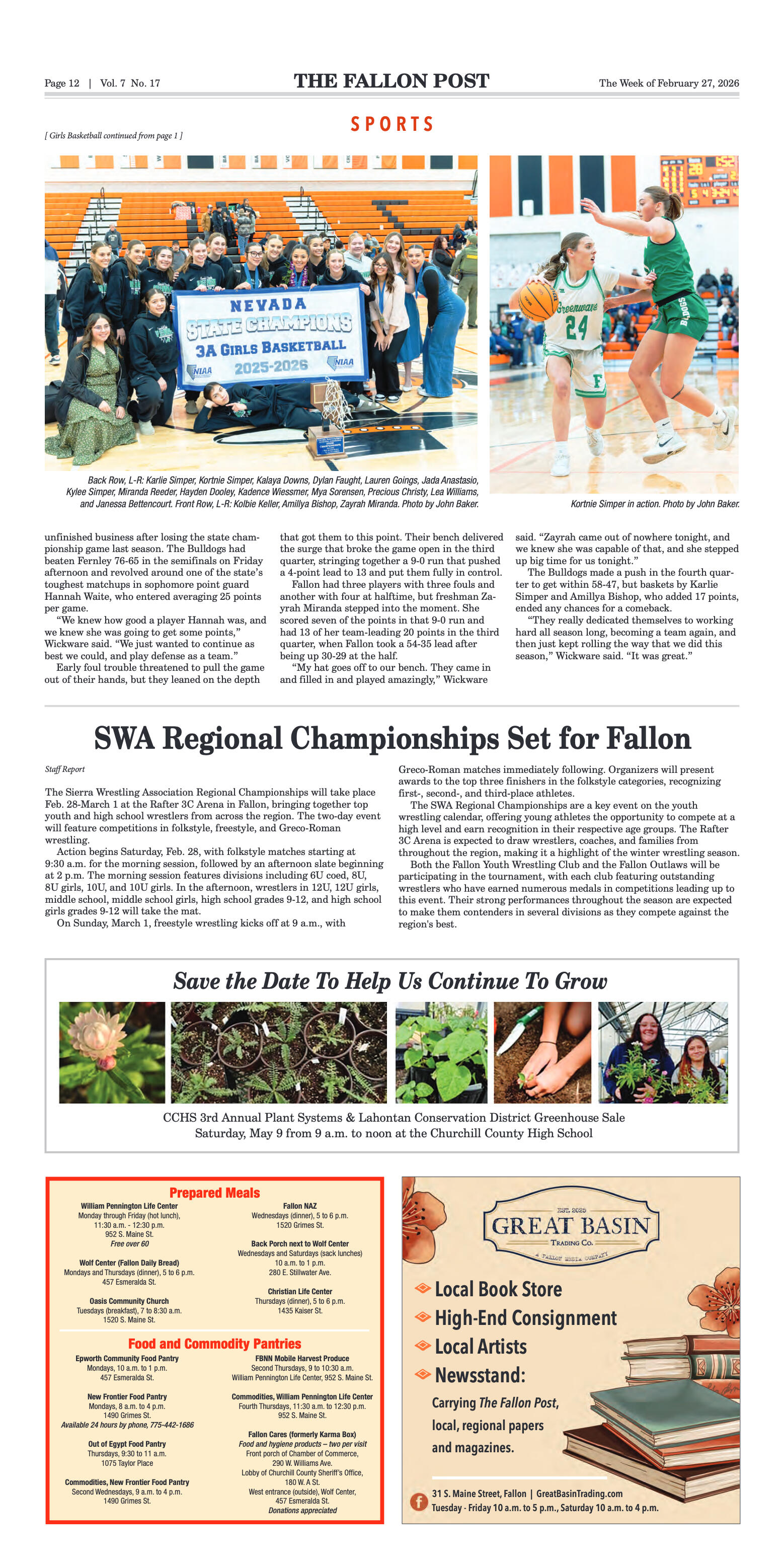
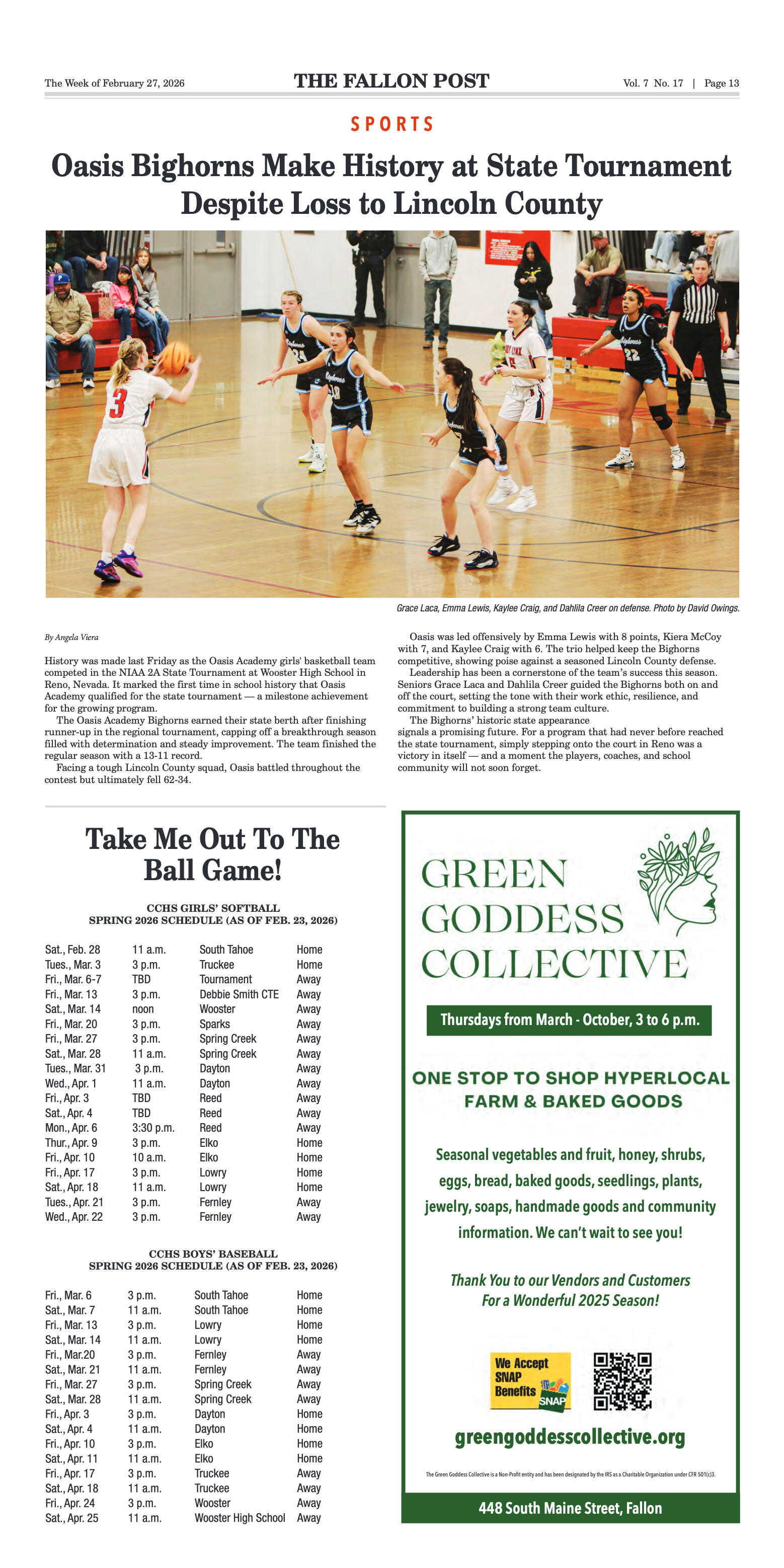
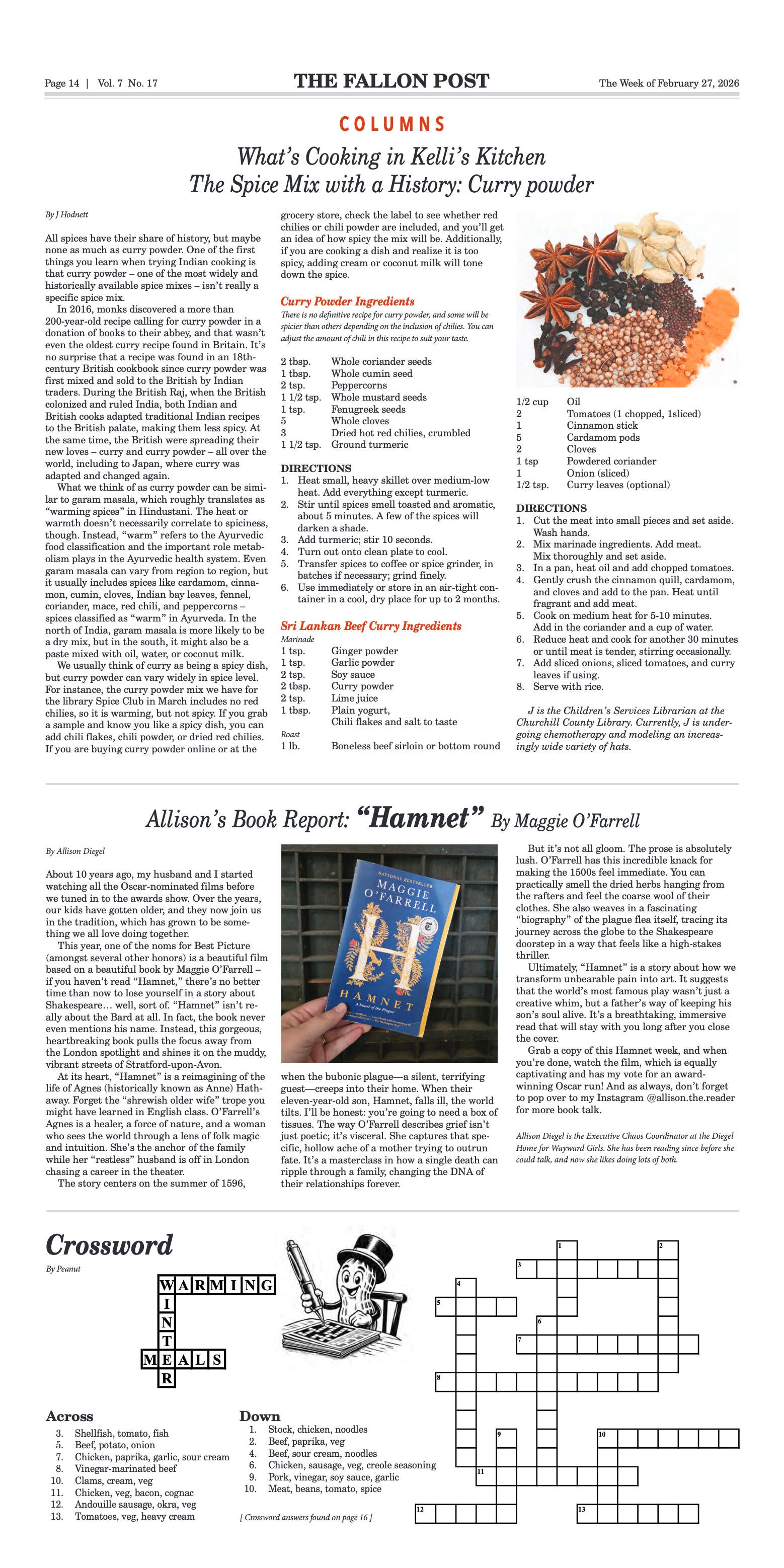
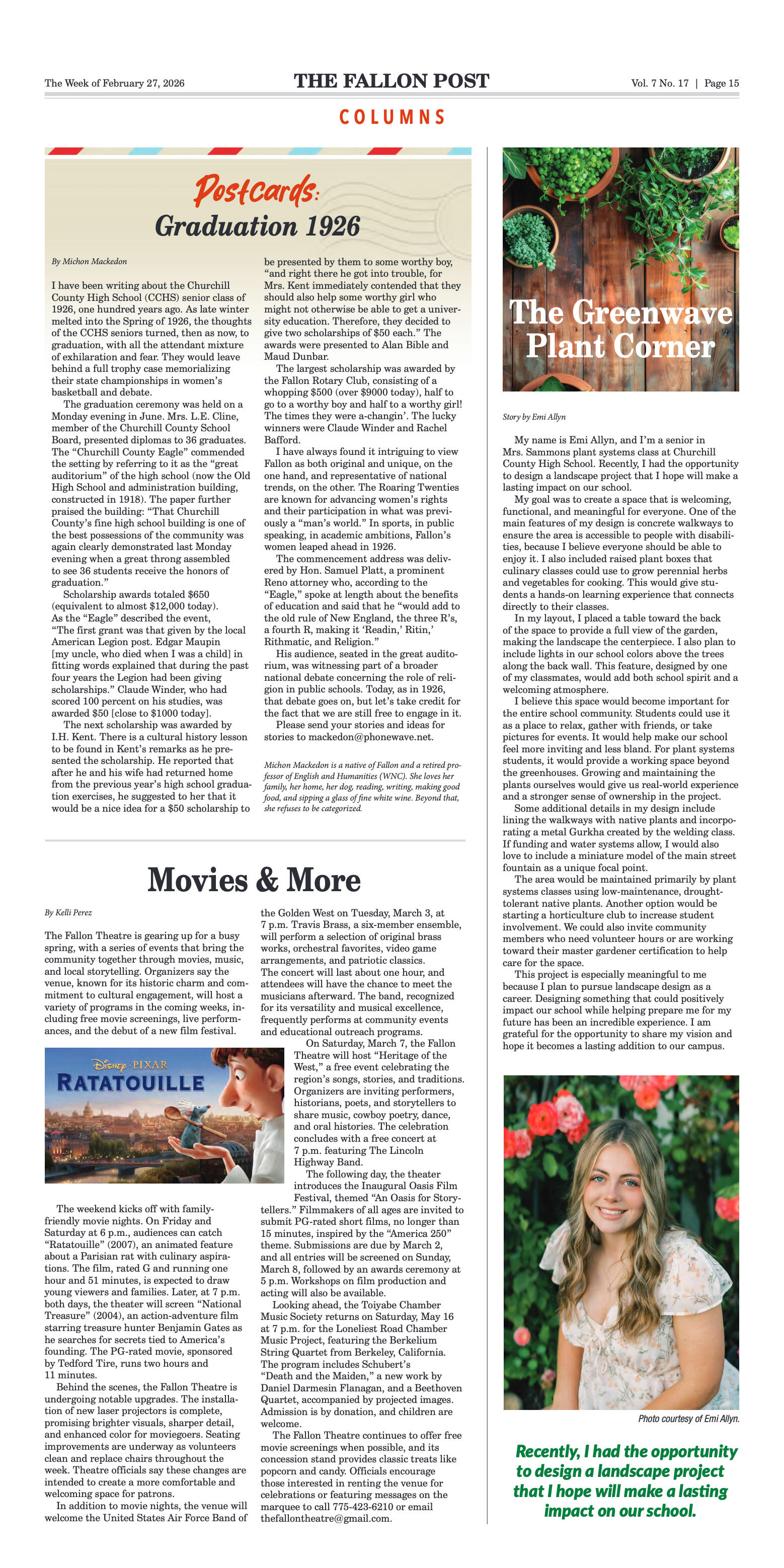
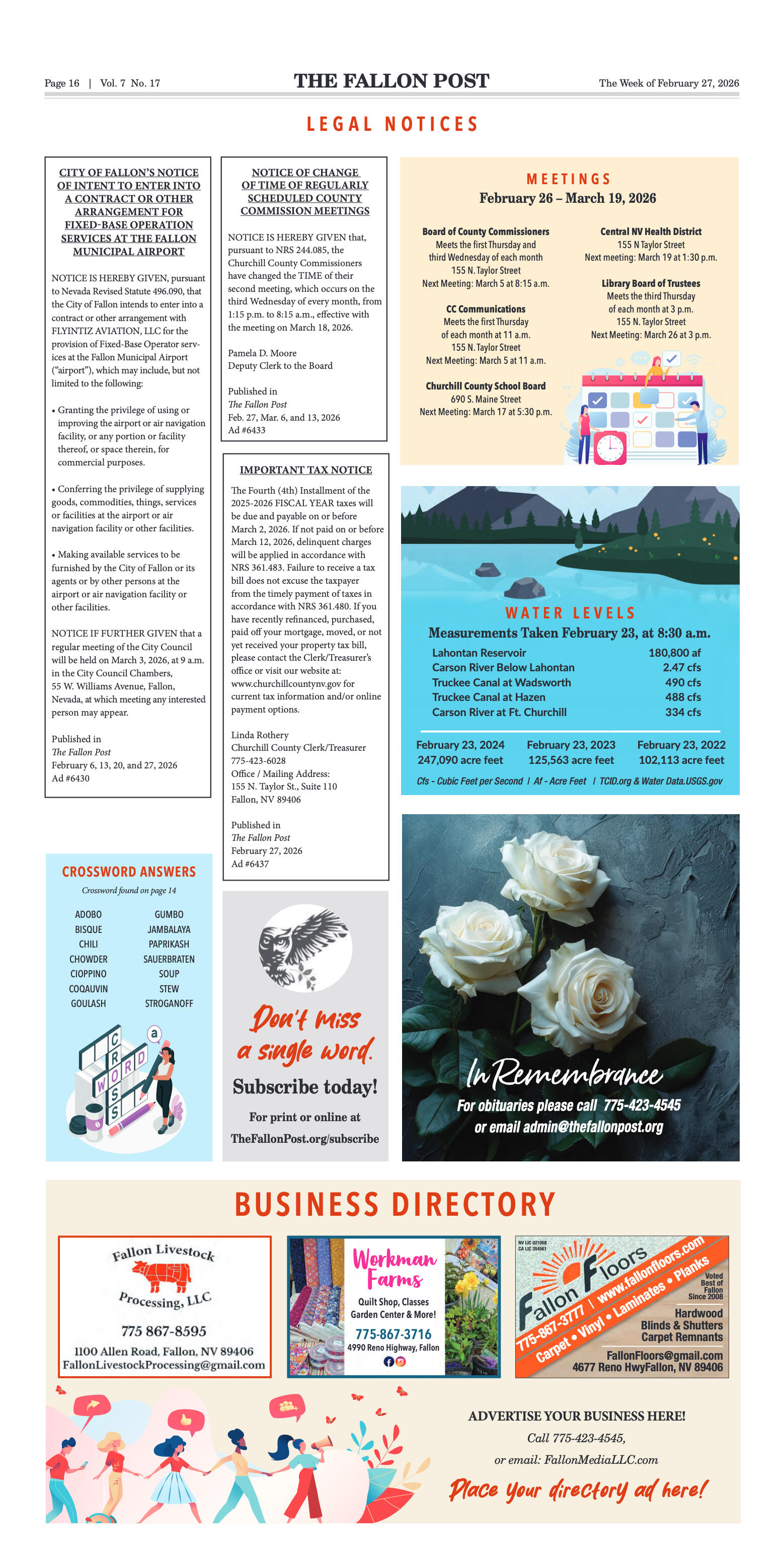
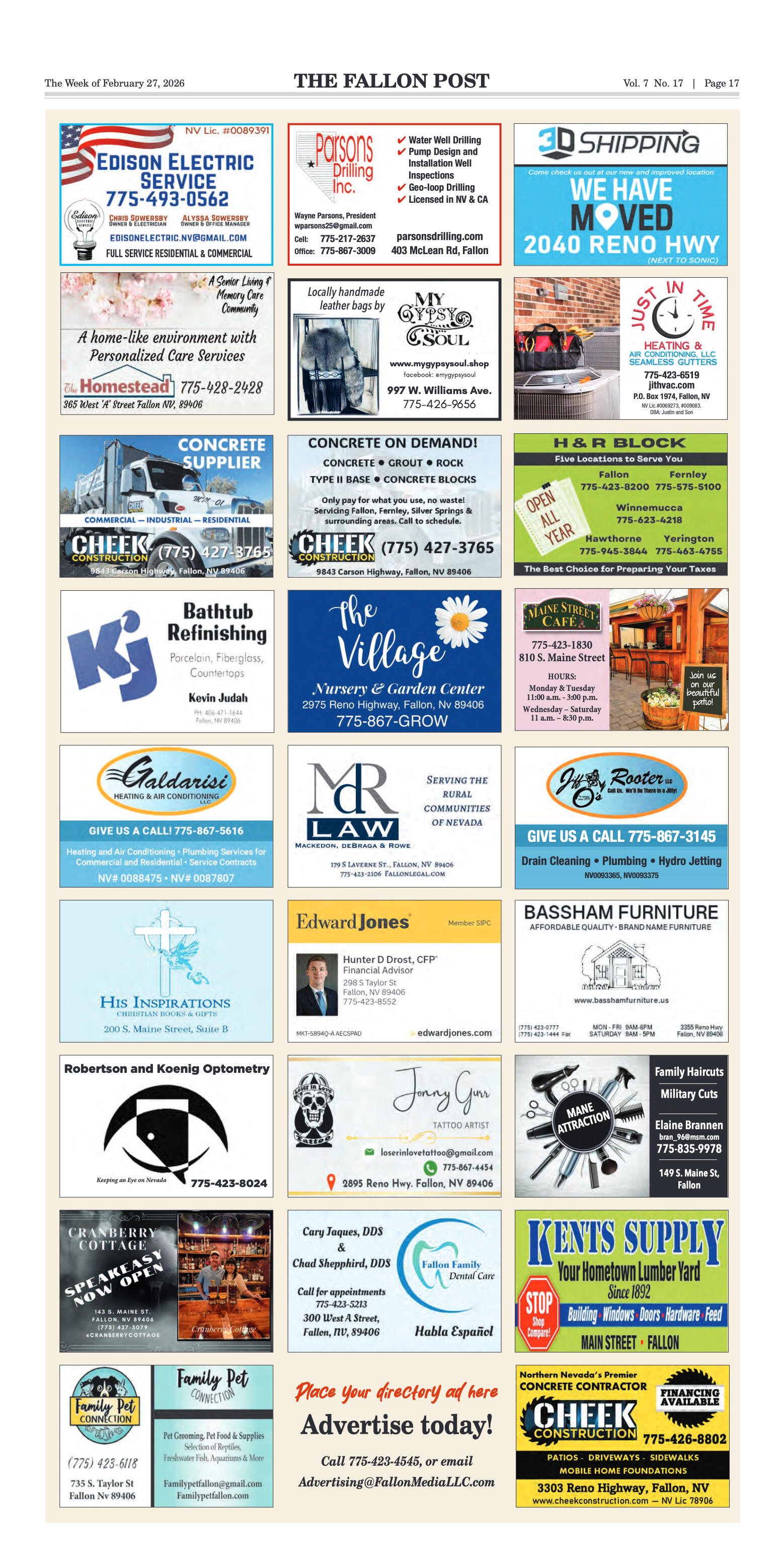

























Comment
Comments